Description
ABSTRACT
Appeal from the Court of Appeal to the Supreme Court on Grounds of Mixed Law and Fact: A Right in Legal Limbo?
Obinna Innocent Akpuchukwu* and Izunna Isdore Ozuo**
Appeals from the decisions of the Court of Appeal lie to the Supreme Court except in certain circumstances established in the Constitution of the Federal Republic of Nigeria 1999 (as amended). However, the Second Alteration of the Constitution and the pronouncement of the Supreme Court in Shittu v PAN Ltd appear to take away the right of appeal of a disgruntled party when the appeal borders on mixed law and fact. This contribution is a reaction to this decision of the Supreme Court and the Second Alteration of the Constitution. The contribution queries the rationale behind the pronouncement and finds that the decision does not constitute a binding precedent in our judicature. The contribution maintains the position that notwithstanding the Second Alteration of the Constitution, appeals on grounds of mixed law and fact from the Court of Appeal to the Supreme Court remain sacrosanct. To achieve this, a positivist analysis of Nigerian legislation as well as case law would be undertaken.
Keywords: Appeal, Grounds of Appeal, Mixed Law and Fact, Legal Limbo, Court of Appeal, Supreme Court, Constitution.
INTRODUCTION
An integral part of the adversarial system of adjudication of disputes is the right to challenge the decisions of lower courts/tribunals before a higher court sitting as an appellate court. In Nigeria, the Court of Appeal is largely an intermediate court saddled with the responsibility of hearing appeals from Federal, State and FCT High Courts, including the National Industrial Court, Customary Courts of Appeal, Sharia Courts of Appeal, Court Martials and special tribunals.1 On the other hand, the Supreme Court is the apex court in Nigeria and has jurisdiction to hear appeals arising from the decisions of the Court of Appeal except in certain circumstances.2
However, the extent and scope of the right to approach the Supreme Court on appeal against the decision of the Court of Appeal is somewhat unclear at the moment.
* Partner, Allen & Marylebone, a law firm based in Onitsha, Anambra State, Nigeria. +234 (0)8035105706; Email: in***************@***il.com.
** Associate at Aluko & Oyebode. +234 (0)7067579577; Email: de********@***oo.com.
- See the Constitution of the Federal Republic of Nigeria 1999 (as amended) (‘the Constitution’), s 240. Such special tribunals include: The Code of Conduct Tribunal (para 18(4) of the Fifth Schedule to the Constitution); The Competition and Consumer Protection Tribunal (s 55(1) of the Federal Competition and Consumer Protection 2018 – although the Act was signed in February 2019, the citation provision, s 168, preferred 2018 to be used); The Investments and Securities Tribunal (s 295 of the Investments and Securities Act 2007) etc.
- These circumstances are 1) The Constitution of Federal Republic of Nigeria 1999 (as amended by the Third Alteration Act 2010), s 243(4) which establishes that ‘the decision of the Court of Appeal in respect of any appeal arising from any civil jurisdiction of the National Industrial Court shall be final’ and 2) The Constitution of Federal Republic of Nigeria 1999 (as amended by the Second Alteration Act 2010 – ‘the Second Alteration’), s 246(3) which provides, ‘[t]he decisions of the Court of Appeal in respect of appeals arising from the National and State Houses of Assembly election petitions shall be final’. See also Ikenya v PDP [2012] LPELR-7824 (SC); Osi v Accord Party [2016] LPELR-41388(SC); Madumere v Okwara [2013] 6-7 SC (part 2) 95.

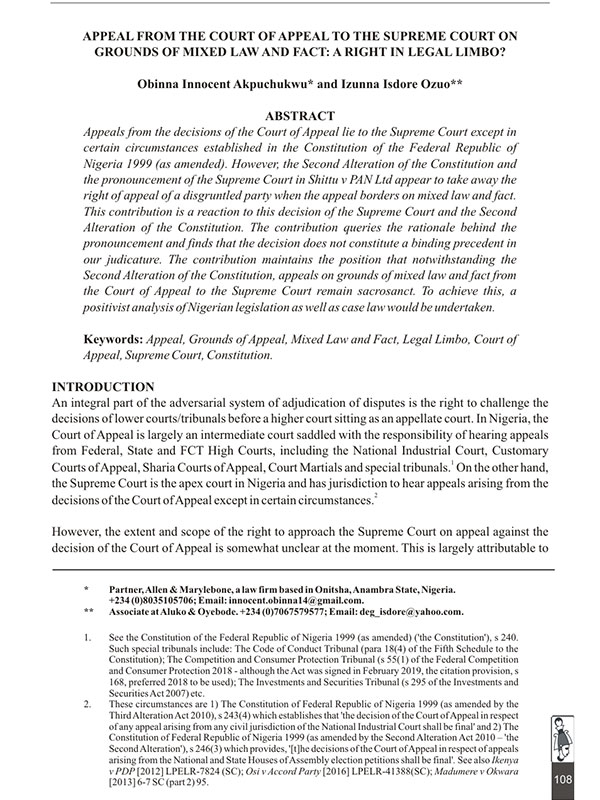
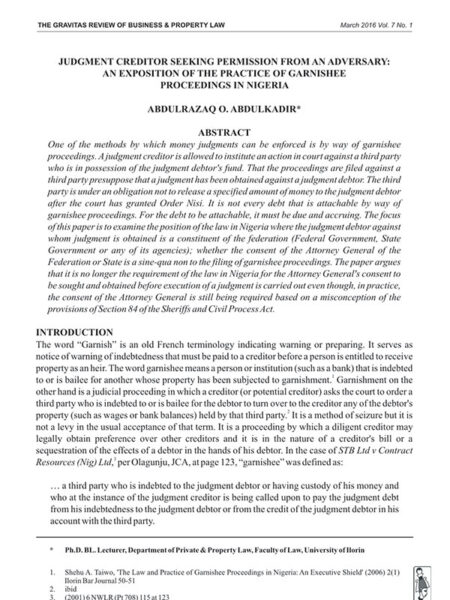
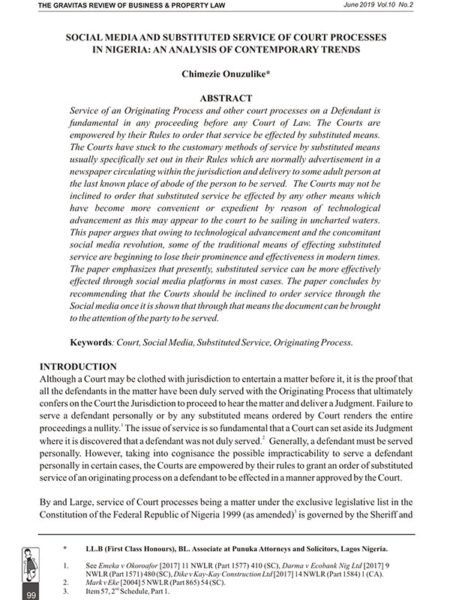
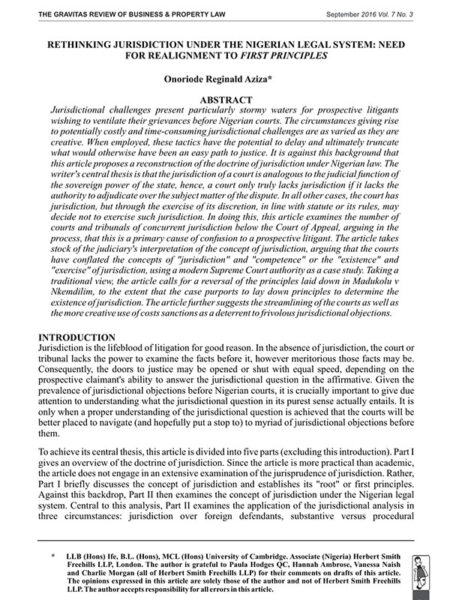
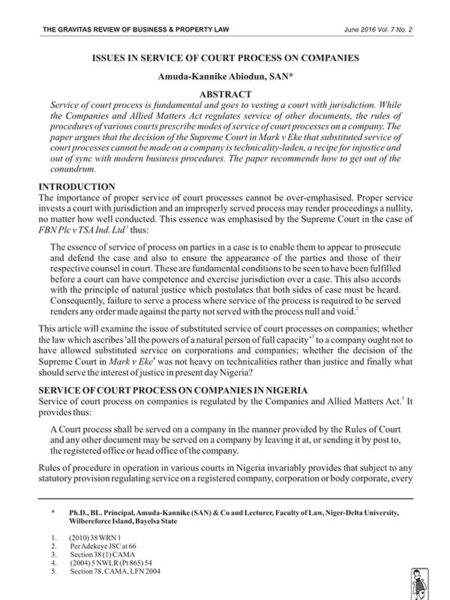


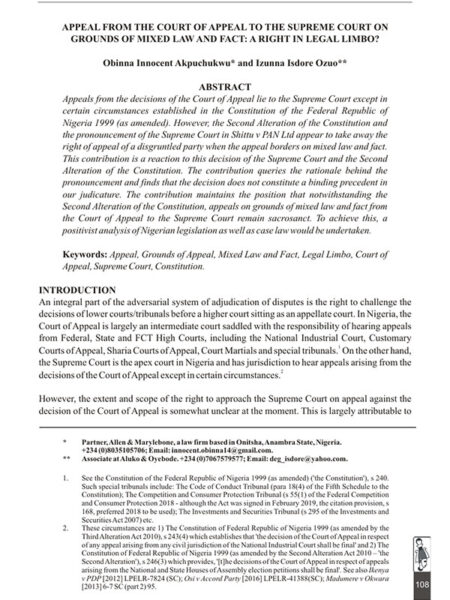
Reviews
There are no reviews yet.